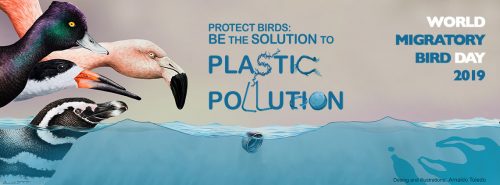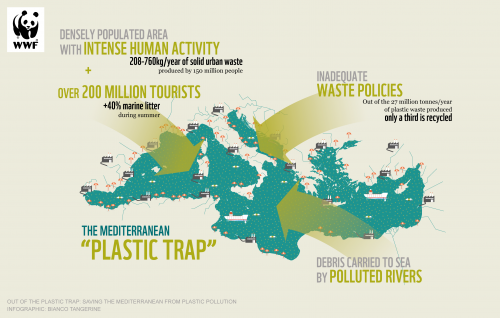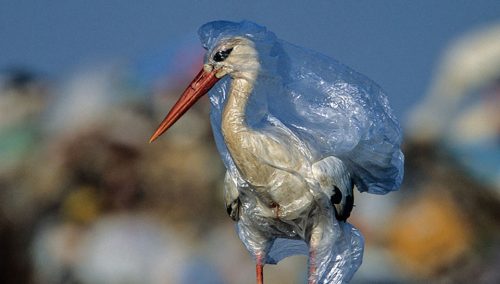Every year, World Migratory Bird Day presents an annual theme aimed at raising awareness of issues affecting migratory birds and at inspiring people and organizations around the world to take measures for their conservation.
This year, the world celebrates World Migratory Bird Day (WMBD) under the theme “Protect Birds: Be the Solution to Plastic Pollution!”, which will put the spotlight on the impact of plastic pollution on migratory birds and their habitats. Sadly, having wings does not help birds escape the threat of plastic. Dead chicks with stomachs full of plastic, entangled and smothered by plastic rings and nets, are all too real consequences of the toll that plastic takes on birds and other wildlife.
The Mediterranean “plastic trap”
The Mediterranean Sea, cradle of civilizations and centre of an extraordinary environmental heritage, is today one of the seas with the highest levels of plastic pollution in the world. According to the report “Out of the Plastic Trap: Saving the Mediterranean from plastic pollution”, published by WWF in June 2018, plastics account for 95% of the waste in the open sea, on the seabed and on beaches across the Mediterranean.
The report states that the Mediterranean basin is home to 150 million people, who produce among the largest quantities of solid urban waste per capita, at 208-760kg per year. The over 200 million tourists visiting the Mediterranean each year generate a 40% increase in marine litter during summer. Every year 150,000-500,000 tonnes of macroplastics and 70,000-130,000 tonnes of microplastics enter European seas. The vast majority of these plastics end up in the Mediterranean.
Major risks for birds
Seabirds choose food through smell. Plastic can be mistaken for food because of the algae and bacteria that colonize it, emitting a strong smell of sulphur. Seabirds associate this smell with food and so fall into “olfactory traps” that lead them to eat plastics instead of their prey.
The WWF report raises the alarm that, today, 90% of the world’s seabirds have fragments of plastic in their stomachs (in 1960 it was 5%); by 2050 this number may rise to 99% if action is not taken to reduce the flow of plastics into the sea. In the Mediterranean Sea, 134 species are victims of plastics ingestion, of which nine are seabird species. Globally, 344 species have been found trapped in plastics. In the Mediterranean, the main victims are birds (35%), fish (27%), invertebrates (20%), marine mammals (13%), and sea turtles.
Urgent actions are needed, today, to mitigate unnecessary injuries and mortality of migratory birds due to plastic pollution. World Migratory Bird Day 2019 is a unique chance to join efforts to address the serious problem of plastic pollution and to highlight its negative effects on migratory birds. Let’s unite our voices to address this rapidly growing environmental concern!
More information
Website of the World Migratory Bird Day 2019.
Register your event today! Join the worldwide celebrations by adding your event to the WMBD event map.



Share